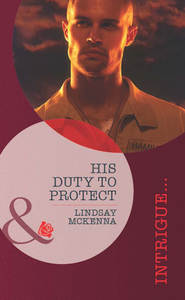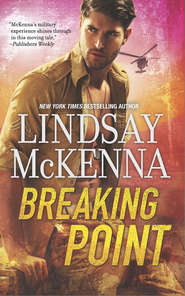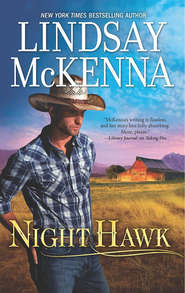По всем вопросам обращайтесь на: info@litportal.ru
(©) 2003-2024.
✖
Sun Woman
Настройки чтения
Размер шрифта
Высота строк
Поля
“Yes. There was not enough food…” She sniffed, taking her sleeve and wiping the tears off her face. Kuchana prayed that none of the other scouts saw her behaving like this. Looking at McCoy, she wondered at the tenderness she saw burning in the depths of his blue eyes. His look gave her a sense of safety she had never known. With a wry grimace, she muttered, “You pull my feelings out of me, Sergeant. I am not used to a man doing this.”
“I’m sorry the child died, Kuchana.” He held her wavering gaze. “As for drawing feelings out of you, all I can say is that’s good, as far as I’m concerned. I want to know how my scouts feel.” When he saw her nod, he added, “When we’re alone like this, call me Gib. I don’t like a lot of formality.”
The compassion in his voice told her much. “Does your name mean something?”
He smiled and shook his head. “I’m afraid not. My mother named me after my grandfather and great-grandfather.”
Just talking with Gib eased the pain and anxiety she carried for her people. The warmth of his husky voice was balm to her grieving heart. “Tell me your family name.”
“Gibson Justin McCoy.”
“You carry the spirit of your family with you?”
“Yes, I guess I do.” He paused. “Kuchana has something to do with water.”
She felt heat flood her cheeks and she lowered her lashes. The warmth Gib established with her was profound and new. He made her heart open like a blossom in the spring. “It means ‘woman of the waters.‘”
“Then you must feel things strongly and deeply, like water.”
With a little laugh, Kuchana said, “Too deep.”
She was beautiful when she laughed. Her eyes, dark brown with gold flecks in their depths, sparkled. And her mouth…Gib took a deep, steadying breath. When her lips curved upward, she reminded him of a sunrise.
“I don’t think it’s wrong to feel things deeply,” he countered thickly.
The burning light in his eyes made Kuchana vividly aware of herself as a woman. Just the way Gib looked at her, she felt special—and beautiful.
“Well,” he said, straightening, “you’re a woman of the waters. I think it’s a good thing. Feelings are not a sign of weakness.”
She shook her head. How odd, a man who approved of feelings.
“We’ve got plenty of things to do this morning,” Gib began. “Why don’t you get something to eat over at the chow tent and then meet me at the stables? I’m having your mare shod and then we’ll find a saddle that fits her.”
“I’ll see you at the stables,” Kuchana agreed.
Wind had already been shod with her first set of shoes by the time Kuchana made her way to the massive stabling area. There were buildings housing dried hay and grain for the hundreds of horses that milled in the huge corrals at the rear of the buildings. She found Gib with a red-haired giant of a man who had a worn leather apron draped around his thick middle.
“This is Kuchana,” McCoy told the farrier, Kelly McManus.
McManus thrust his big meaty hand in her direction. “Right nice to meet you.”
Kuchana hesitantly placed her hand in the farrier’s, unfamiliar with the greeting. She’d seen pindahs do this before on the reservation. McManus had dancing green eyes, a red mustache that drooped like twisted ropes down the sides of his mouth. As she reclaimed her hand, his smile made her relax.
“Your mare is over there,” the farrier said, pointing down the aisle of the open building where at least twenty horses were tethered.
The black mare wore a halter, and the rope was tied to an iron ring that hung from a stout wall. She pricked up her ears as Kuchana thanked the farrier and walked down the well-swept aisle.
Gib escorted her down the center of the building, walking at her shoulder. On either side were roomy box stalls, and other rooms at the rear that held tack and barrels of grain. He noticed that Kuchana had washed and neatly combed her hair. The faint scent of soap lingered around her. Memory of Melissa’s cutting remarks yesterday that Kuchana smelled came back to him. It was obvious she had tried her best to look neat and clean under the circumstances. The clothes she wore were threadbare and would have to be replaced. It crossed his mind that he would like to give her a pretty dress to wear, instead. He laughed at himself. It was the first time in his life he’d ever wanted to give a woman gifts. Kuchana invited that kind of response.
“Has your horse ever worn a saddle?”
“Yes, I had a cottonwood saddle for many years until the culo-gordos attacked our camp and I had to leave it behind.”
Wind nickered as Kuchana walked up to her. She patted the mare fondly as she inspected the new iron shoes on her hooves.
McCoy took a blue wool blanket edged with yellow and threw it across the mare’s back. “From now on, you’ve got to ride with army gear.” He pulled a black, bull-hide-covered McClellan saddle off the rack and settled it on the animal’s back. In no time, he showed Kuchana how to cinch the double girth. Next came the military-issue bridle. Wind wasn’t very happy about having a metal bit in her mouth, but she accepted it with grace after attempting to chew on it.
Kuchana stood back, amazed at all the items that McCoy had piled in front of the pommel and behind the cantle of the saddle. There were canteens, pouches for ammunition, a blanket, and containers to carry food and even grain for Wind.
“When you’re assigned to ride with a column, you’ll come over here and saddle the mare up just like this.” He saw the stunned expression in Kuchana’s eyes. “Something wrong?”
“No.” She stepped up to Wind, placing her hand on the mare’s neck. “There is so much.”
“When a column goes out, we usually patrol for five to ten days at a time.” Gib gestured to the saddle that had been created for endurance riding. “We have a saying in the army. We ride forty miles a day on beans and hay. The pack mules carry the hay and most of the food, but sometimes, on a forced march, we have to rely on what we can carry on our saddle.”
“Pindah horses can never keep up with our horses,” Kuchana noted proudly. She pointed to a bay gelding tied next to Wind. “Look at him. He is grain fed. I have seen many army horses unable to stand the heat or the distance.”
“You’re right. I told the officers here they shouldn’t feed our animals grain.” He grinned, giving the mare a pat on the shoulder. “We ought to train our horses to eat cactus like you do yours.”
“Wind will not die on a march. She knows to eat cactus for food and also water in order to stay alive.”
“The Apache know how to survive,” Gib agreed with a smile. “Come on, let’s go over to Supply. We’ll be coming back to do some hunting, so leave Wind saddled.”
Kuchana’s eyes shone with excitement as she walked with Gib toward another large two-story adobe building. “We hunt four-leggeds?”
“Yep. I figure the only way to get Chee and the colonel to believe in you is to prove your worth as a tracker. Lieutenant Carter ordered Chee to send someone out to the mountains over there—” he pointed to the north “—and kill some deer or bighorn for the officers’ families.”
“I will prove myself worthy.”
Gib saw the challenging fire in her eyes. “Well, whatever we kill, some of it is going to be dropped off to Poppy so she can distribute it among the laundry families.”
“Who is Poppy?”
“One of the women who washes clothes.”
“A dark-skinned one?”
Gib smiled “Yes.”
As they climbed the steps of Supply, Gib noticed the soldiers giving Kuchana discreet looks. He led her inside the building where clothing, weapons and tack were kept. Sergeant Mulrooney, head of Supply, nodded a good-morning to them.
“Kuchana needs a scout’s issue, Sergeant,” Gib told the gray-haired man.
“Right away, Gib.”
Kuchana turned around, looking at the columns of boxes stacked around the room. There were huge piles of green wool blankets, canteens, saddles and row upon row of rifles.
McCoy was sure that she’d never seen so many new things. Her face glowed with excitement when Mulrooney led her to the clothing section.











